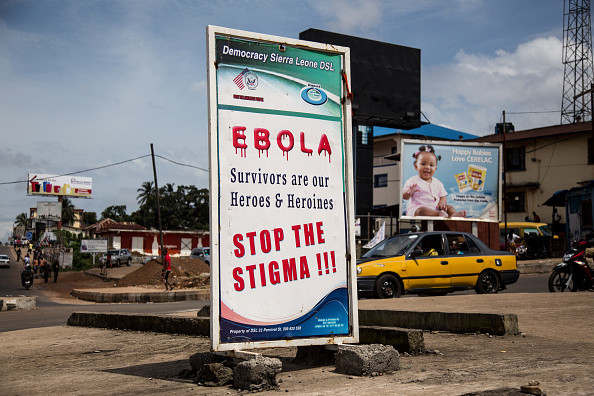Ebola resurfaces in Liberia with 3 new cases

In what could be a set-back for the country, three new cases of Ebola have been reported more than two months after Liberia was declared free of the virus. Around 153 people have been placed under surveillance.
Liberia has twice been declared free of the virus by the World Health Organization (WHO), earlier in May and then in September. Ebola has claimed over 4,800 lives in the country and around 11,300 people, mostly in the three West African nations of Sierra Leone, Guinea and Liberia, since December 2013.
A 15-year-old from a suburb to the east of Liberian capital Monrovia was the first to be confirmed positive and admitted to a hospital, followed by two other family members. "We have three confirmed cases and have listed 153 contacts, and we have labelled them as high, medium and low in terms of the risk," the country's chief medical officer Dr Francis Kateh told Reuters on Saturday (21 November).
It is not known how the boy was infected. Earlier resurgence of Ebola in Liberia was believed to be due to sexual transmission as the virus can exist in the semen of survivors for almost nine months after infection. The other mode is fresh infection from an infected animal.
Transmission across the borders is being ruled out as both Guinea and Sierra Leone have been declared Ebola-free in November after 42 days of no new cases. A baby girl in Guinea, who was the last known Ebola patient, has recovered from the disease but remained under surveillance. She was infected by her mother who did not survive.
WHO pulled up
The WHO, meanwhile, came in for more criticism over its handling of the Ebola epidemic. A specialist panel convened by Harvard's Global Health Institute (HGHI) and the London School of Hygiene & Tropical Medicine (LSHTM) pulled up the UN health agency for its slow response, reports Reuters.
"The most egregious failure was by WHO in the delay in sounding the alarm," said Ashish K Jha, HGHI's director and a leading member of the panel. "People at WHO were aware that there was an Ebola outbreak that was getting out of control by spring, and yet it took until August to declare a public health emergency."
Besides the reflection "on how and why the global response to the greatest Ebola calamity in human history was late, feeble and uncoordinated", the panel studied ways to strengthen core capacities in all countries to detect, report and respond rapidly to contain small outbreaks.
The WHO had earlier acknowledged its failure to respond effectively to what it had called an 'unprecedented outbreak'. A report by an internal panel found it unclear "why early warnings, approximately from May through to July 2014, did not result in an effective and adequate response".
Poor coordination with partners, shortcomings in risk communications and confusion of roles and responsibilities contributed to its failure. The aid agency Medecins Sans Frontieres also had come down heavily on WHO.
The disease spreads through contact with bodily fluids, with symptoms showing a few days after incubation. These include fever, headache, weakness, dizziness, diarrhoea, abdominal pain, sore throat, vomiting and conjunctivitis with fatal outcome associated with weakness, dizziness and diarrhoea.
© Copyright IBTimes 2025. All rights reserved.





















